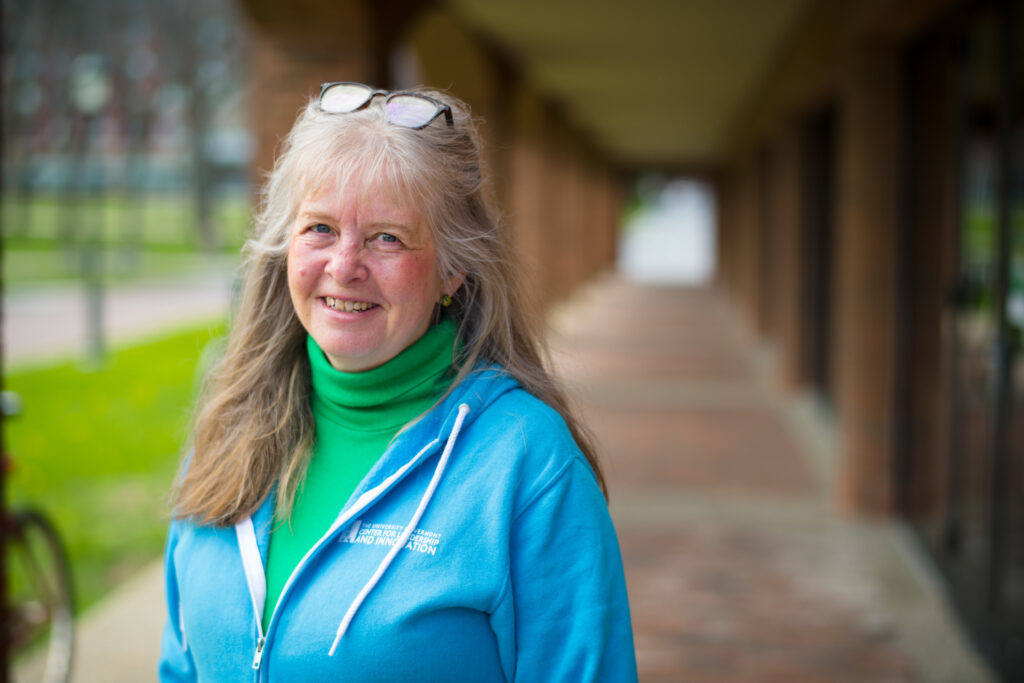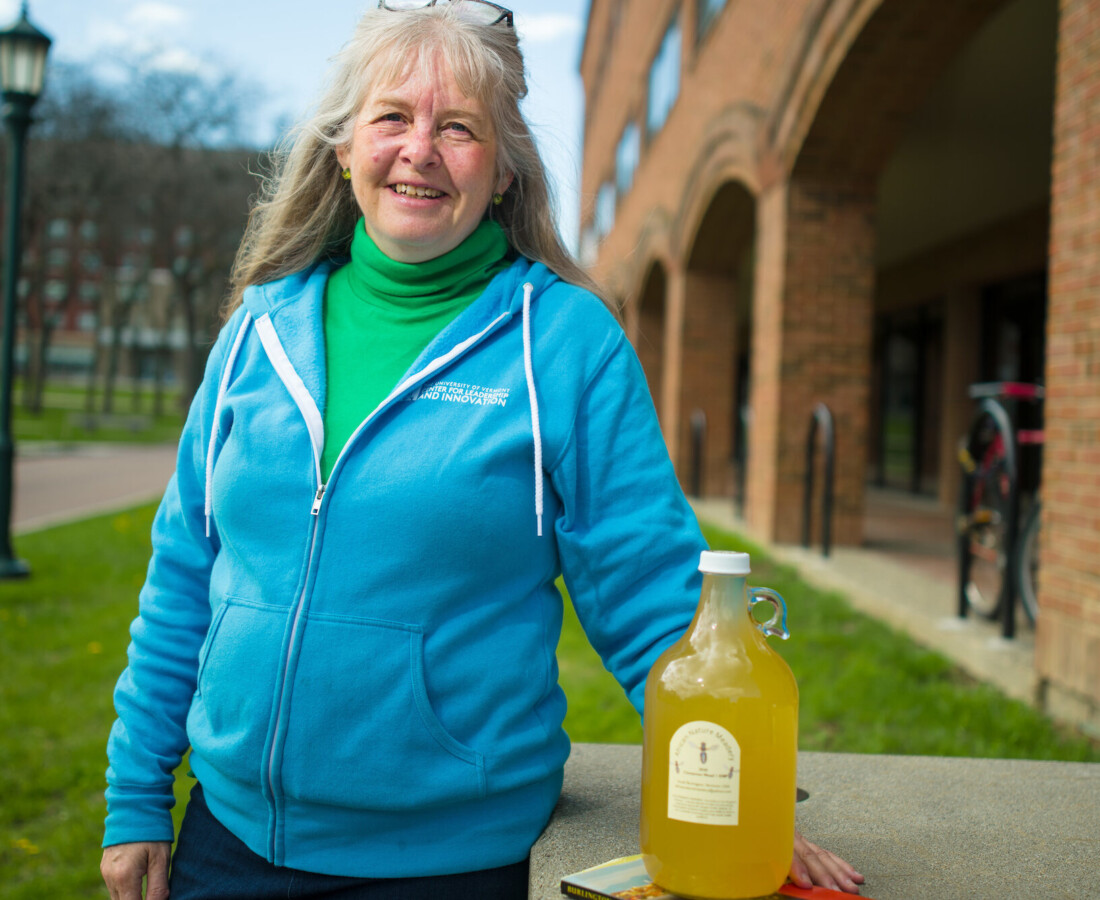Anne Outwater has researched violence in Tanzania for decades to uncover ways of promoting peace. In 1998, she witnessed the destruction caused by the US Embassy bombing in Dar es Salaam as a nurse and first-responder, an experience which led her to devote her life to decreasing violence. To this end, Outwater earned a PhD researching causes of violence and searching for potential solutions. “A lot of my research is focused on entrepreneurship for those most at risk of perpetrating and being victimized by violence (that is, poorly educated, under- or unemployed young men),” she explains. “The evidence suggests that entrepreneurship training can lead to decreased violence and increased well-being. So, we will continue exploring this path.”
Outwater has attempted to do just that by creating training programs for at-risk young men in Tanzania. While these programs have been successful in providing “training in [non-violent] beekeeping and entrepreneurship,” the market is saturated with such products. These traditional beekeepers are “a primary driver of the idea” of establishing a meadery and brewpub in Tanzania; Outwater’s goal is to “support the market” for this honey that is “of such unique quality (produced by native bees foraging with the plants they evolved with), and so potentially important on so many levels—individual, family, community, and even national.”
To establish the business, Outwater has partnered with a Tanzanian restaurateur and fellow nurse, with whom she worked at Peace Corps Tanzania and with whom she entered the bombed Embassy. The “funding has been secured for the initial stages” and “partnerships are being set up,” Outwater says. “That the meadery can be a hub supporting supply chains of indigenous products… is exciting.”
UVM’s Business of Craft Beer Program Helped Anne Outwater Reach Her Goals
In developing this idea, Outwater says “I could think of no reason not to implement the idea—except for my personal lack of expertise to actually make it happen.” She was missing the business skills necessary and sought out a “step-by-step program that would guide me all the way from a deep lack of knowledge in the area [to] writing a feasible, learned, reasonable business plan worthy of implementation.” When she discovered UVM’s Business of Craft Beer (BoCB) program, “I recognized [the course offerings] as the knowledge I needed: business structure, finances, operations, distributing, and branding.”

Outwater also appreciates the program’s promotion of “the idea of starting small, within one’s capabilities, solidifying that foundation, and then moving forward.” Applying this to the plans for their Tanzanian brewpub, Outwater and her business partner will “introduce our honey-based beverages, producing alcoholic (mead) and non-alcoholic (juices and sodas), and figure out our market, what people like, and build our foundation.”
Establishing Connections with Community
The program ethos and teachings of the BoCB program mesh with the results of her research: “Our research indicates that people who express community-based skills such as helping and sharing are less likely to die a violent death. We have also found that employment through entrepreneurship appears to be a viable solution to decreasing violence amongst those most at risk.” She asserts that the “next step is implementing, through the meadery, the knowledge gained” from her research, and measuring the impact of the meadery on the incidence of violence “among producers, suppliers, and employees of the meadery” in Tanzania.
her promotion of peace.
FOR MORE INFORMATION:
- Visit the Asali Society Tanzania Facebook page for updates on Anne Outwater’s partnerships, peace work, and production of mead in Tanzania.
- Examine all aspects of the craft beer industry through our BoCB podcast with Gregory Dunkling, director of the UVM BoCB online certificate program.
- Explore course offerings from UVM’s Business of Craft Beer program.




